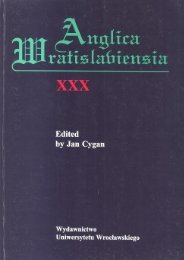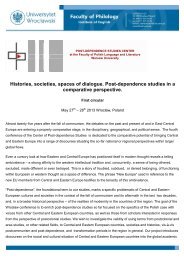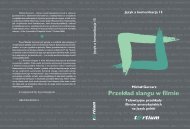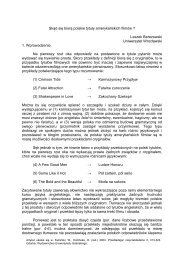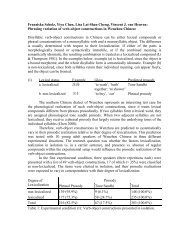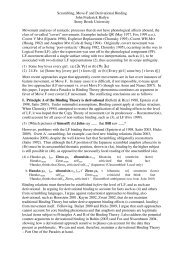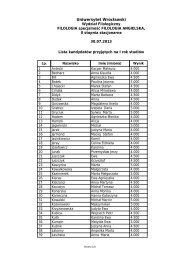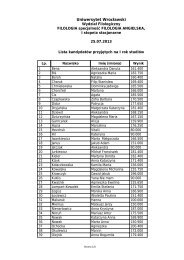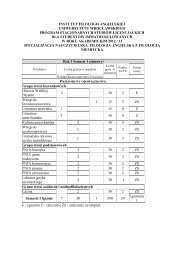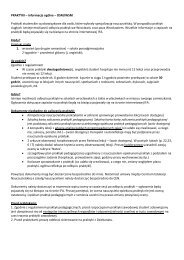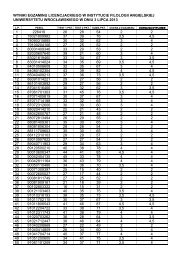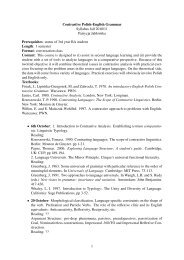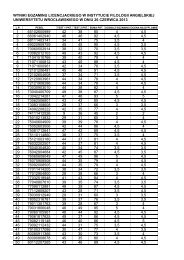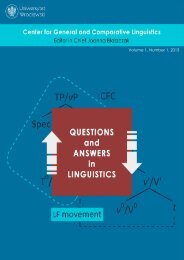Academic Journal Modern Philology
Academic Journal Modern Philology
Academic Journal Modern Philology
You also want an ePaper? Increase the reach of your titles
YUMPU automatically turns print PDFs into web optimized ePapers that Google loves.
<strong>Academic</strong><br />
<strong>Journal</strong><br />
of<br />
<strong>Modern</strong><br />
<strong>Philology</strong><br />
Jacek Karpiński<br />
Erasmus Leerstoel voor Nederlandse Filologie<br />
ISSN 2299-7164<br />
Vol. I (2012)<br />
s. 25-32<br />
“Gelieve aandachtig deze instructies te lezen alvorens<br />
het formulier in te vullen”<br />
Formulieren, interculturele communicatie<br />
en transnationale neerlandistiek<br />
Abstract<br />
“Before filling in the application form, please read carefully these<br />
instructions.” 1<br />
Forms, Intercultural Communication and Transnational Dutch Studies<br />
Almost everyone is familiar with various types of formal forms. The language as well as the structure of such texts<br />
differ, however, from the standards and rules of every-day communication, which, in consequence, may lead to many<br />
problems. Reading the instructions to the form may not always constitute great help or assistance. It is very common<br />
that people, who are obliged to fill in the particular form, come across different terms or sophisticated grammatical<br />
structures they do not know or at least do not fully comprehend. Let us add to all these problem a notion of a<br />
foreign language, and as a consequence, a foreign culture for which the form is prepared, we may be facing an<br />
insurmountable barrier – both linguistic and cultural. This is a matter which, nowadays, modern philologists have to<br />
face. Particular intercultural problems or difficulties which may additionally constrain the communication should<br />
also be overcome. The first part of the article expounds upon some of the problems that people, who have to fill in<br />
the Dutch forms, may encounter. The second part of the article discusses how the official forms may be introduced<br />
to the educational curriculum as a didactic means that helps in the process of both language teaching and learning.<br />
Keywords: form, intercultural communication, Dutch studies, glottodidactics<br />
1 The title of the article contains a standard office annotation, found on a variety of forms in Dutch.



